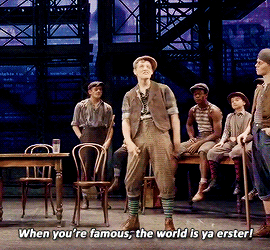#advice for writers
Tip for struggling writers!
Have you ever had a scene that really isn’t working in your story, but you can’t bring yourself to get rid of it? (Whether it be because it’s an important scene plot-wise or you’re just proud of how it’s written?)
Make an “Extras” file!
Instead of deleting all your hard work, you can cut the bothersome scene and paste it into your “Extras” file to save it for later. Somewhere down the line, you may find an opening for all or parts of it! Or, if you’re re-writing the scene altogether, you can cut and paste details/sentences into your re-write that you liked or are important!
This method has helped me countless times during re-writes, and has saved me a ton of time and effort!
some highlights from my writing seminar with honestly one of my favourite authors of all time who shall remain nameless bc i dont want her to know i was spilling her secrets online
- The first trick is to detach yourself from your idea. You don’t have just one novel inside you, and it’s not a big deal if you don’t finish this novel.
- She was skeptical of the common advice “just write!!1!” - she talked about how long ideas for her most popular novels were marinating inside her before she properly wrote them
- As a continuation of that, she was a big believer in knowing what you want to write before you write it. Not what you’re goingto write, what you wantto write.
- The first thing she decides about a novel is what the mood is going to be, and this informs every other decision (e.g. the mood for Shiver was bittersweet)
- Ideas should be personal, specific, exciting and they should exclude secondary sources. A personal idea isn’t necessarily autobiographical (which should be avoided), but it speaks to your emotional truth.
- She said she had been read Ronsey fanfiction and she couldn’t view her car in the same way since.
- Story is the thing that seems most important to reader but is most changeable to the author - story is subservient to your mood and your message. Change what you like in the plot as long as your book retains its sense of self.
- Story is conflict, exploration and change. A good story has active tension -the characters want something, instead of just wanting something not to happen (e.g. wanting to kill an enemy instead of simply defending a stronghold against an enemy)
- A story needs to have a concrete end, something to be done.
- Satisfaction is important - deliver what you promise to the reader. The other shoe has to drop. Ronan Lynch doesn’t ever talk about his feelings, so its rewarding when he does.
- Earn your emotional moments (she threw shade at Fantastic Beasts lmao)
- Forcing a character to be passive is dissatisfying to the reader.
- Characters are products of their environments, consistent/predictable, nuanced and specific, moving the plot, and subservient to other story elements.
- She always starts with tropes for ensemble casts like sitcoms. Helpful for building good character dynamics.
- Write scenes with characters saying explicitly what they’re thinking and then go back and make them talk like real people in the edit.
- An action can also prove what they’re thinking, instead of making them say it or another character guess it (e.g. Ronan punching a wall).
- Move the reader’s emotional furniture around without them noticing.
- All her books follow the three act structure. Established normal -> inciting incident -> character makes an Active Decision -> fun and games -> escalation -> darkest moment -> climax.
- Promise what you’re going to do in the first five pages.
- Read your book out loud. Record yourself reading it.
- If you have writer’s block, it’s because you’ve stopped writing the book you wantto write. She likes to delete everything she’s written until she gets back to a point where she knew she was writing what she wanted to write, and then carrying on from there.
Yes!! Even you!
Basically, a few months ago, I was approached and asked to write a script for a play somebody had an idea for, and wanted to direct. Had I ever written anything like this before? Nope. Anyway, ‘she.’ came to be - the story of a voiceless assault victim. The experience was incredible, we worked with such an exciting cast, and donated the money to the Dublin Rape Crisis Centre. But I took one thing away from it - writing a script is life changing. Here is why EVERY WRITER needs to write a play.

1. Writing exclusively dialogue is hard.
Are you one of those writers who can write enthralling, captivating descriptions, but every conversation is an identical flop? Writing a script will challenge you - all you have to work with is dialogue! And the odd ENTER STAGE RIGHT.
2. Your audience is entirely under your control.

A novel is a private thing. A novel is for you to read, curled up in your room, to react to alone. At your own pace, you can take the time to think about it as the story unfolds overtime. But when you’re writing a play, all the information is revealed to the audience at exactly the moment you want. You (hopefully!) have the audience’s entire attention - the pauses are as you want them to be, not for as long as somebody wants to put the book down. You give them exactly as much time to think about something as you want them to. The play doesn’t have to make it to the stage for this experience. It’s all about thing about how your story processed.
3. You can experiment with things you just can’t do in a novel.
bUt yOu CaN dO whatever YoU WaNt iN yOuR NoVEl. Not as much as you can do on a stage! In terms of narrative, and plot development, and backstory - again, it doesn’t have to make it to a stage, it’s just about changing the way you think as a writer. In a play, you can put scenes wherever you think works, make everything a mess which suddenly dawns in the last scene. The world is yer erster!

4. You unlock a whole new world of tools to work with.
Lemme say it one more time - YOUR PLAY DOES NOT HAVE TO MAKE IT TO A STAGE FOR YOU TO LEARN FROM THESE But you suddenly have several new ways to tell your story. Lighting! (COLD LIGHT floods the stage.) What a way to convey a mood! Stage directions! Parentheticals! Cuts and transitions!
5. Wait, so how am I meant to apply this to my novel?

How, exactly, are you meant to apply this to your beloved WIP? I don’t want to be a playwright, you say! I’m a novelist! Well, let me tell you, your dialogue will have improved. Massively. You’ll have a new, interesting mindset on writing stories. And maybe, someday, you’ll make it to Broadway..
-
I hope this was helpful! As always, if anyone has any writing related questions, feel free to message me, Aoife, @writingguardian
My next post will likely be some with actual play writing advice - so stay tuned! X
Some of the best chemistry/relationships in fiction exist between characters who are/become friends. Here are some tips for making friendships come alive on the page:
1. Banter
- One of the most interesting aspects of fictional friendships is the way the characters interact with each other whilst important plot points are occurring.
- If your characters have easy banter, teasing one another without missing a beat and managing to bounce off each other even in the toughest circumstances, it will be clear to the reader that these two are/should be good friends.
- Friends know each other well. They know the other’s character so well that they can easily find something to tease each other over. However, this also means knowing which topics are off-limits.
- If you want to write a good, healthy friendship, your characters shouldn’t use humour/sarcasm as a way to hurt the other. It should be good-natured and understood as such from both sides.
- Different friendships will have different types of chemistry. Some friends may tease each other with facial expressions. Others may already anticipate a snarky remark and counter it before it’s been spoken. Others will have physical ways of goofing around.
- Some friends might not tease each other at all. Banter isn’t necessary; it’s just a good way to make your characters come alive and make their friendship one that is loved by readers.
- What’s important is chemistry - the way they automatically react to each other.
- Think Sam and Dean in Supernatural or Juliette and Kenji in the Shatter Me series.
2. Mutual support
- Unless you purposefully want to write an unhealthy/toxic friendship, your characters should both be supportive of the other.
- This means that, even if one is the MC and the other the side-kick, both should be cognisant of the other’s feelings and problems, and should be considerate in this regard.
- Few things will make your MC as likable as remembering to check in and be there for their best friend even when they are in the thick of a crisis.
- You need to show your characters being vulnerable in front of each other and being supportive in ways that are tailored to the needs of each friend.
- So, if one of the characters really responds to physical comfort, the other should know to give hugs/rub their back when they’re not feeling well. Similarly, if one of them doesn’t like being touched and responds to material comfort, have the other bring them ice cream and join them for a movie marathon. Whatever works for your characters.
- What gets me every time is when a character is falling apart and won’t listen to/be consoled by anyone but their best friend (but this is just personal preference).
3. Knowing the other’s past/family life
- This really only applies to characters who have been friends for quite a while.
- Good friends know each other’s backstory - the highs and lows and mundane details. They know they layout of their family home and they probably know their family members well.
- Friends will often talk about these things, only having to mention a few words for the other to know what they’re talking about i.e. “The ‘09 Thanksgiving disaster” or “You know how Uncle Fred is”
- This will instantly make it clear that your characters are close and have come a long way together.
- Perhaps there are issues at home/trauma from the past that the other character will immediately understand. So, if one character appears with a black eye, their friend might know that the father was probably drunk the night before and got violent. Or if the character has a nightmare, the friend might know that it was about childhood abuse etc.
- This can also apply to good things i.e. if one of the characters gets a nice note in their lunchbox, the other might know that their grandma is in town.
- Whatever works for your story should be used to indicate the level of unspoken understanding the friends have.
4. Being protective
- Few things will make your readers love a friendship more than the friends being fiercely protective of each other (in a healthy, non-territorial way).
- Has someone hurt one of the characters? The other should be furious and want to exact revenge. Does someone say something demeaning to one of the friends? The other should defend them immediately and vehemently.
- This can also take on a humorous twist if one of the characters starts dating someone. The friend can make extra sure that said date is sincere and promise to exact vengeance if their friend is hurt.
- This can also be a great plot device, since it could explain why the MC’s best friend joins the quest/goes along on the journey. Perhaps this is the main plot point: a character seeking to protect/avenge their friend.
- If you want to go in a toxic direction, this can be taken too far i.e. a friend who never lets the other spend time with anyone else/stalks the other/is patronising etc.
5. Common interest(s)
- Even if the two characters are vastly different, there should be something that keeps them together besides loyalty.
- This is especially important for characters who become friends throughout the course of the novel.
- This doesn’t have to mean that both of them go hiking every weekend or want to become pilots one day. It could be something small, like a love of cheesy movies or a shared taste in music. Maybe they both enjoy silence/don’t like other people. Maybe they are both social justice warriors, but for different causes.
- This could also be common characteristics instead of interests. Perhaps both are very ambitious/funny/social.
- There should just be some factor that ignited the friendship and brings the two of them together.
- This doesn’t necessarily have to be a big part of your story, but you should at least have it mentioned to make the friendship appear more authentic.
Reblog if you found these tips useful. Comment if you would like a Part 2. Follow me for similar content.
I love writing friendships and these are awesome points.
